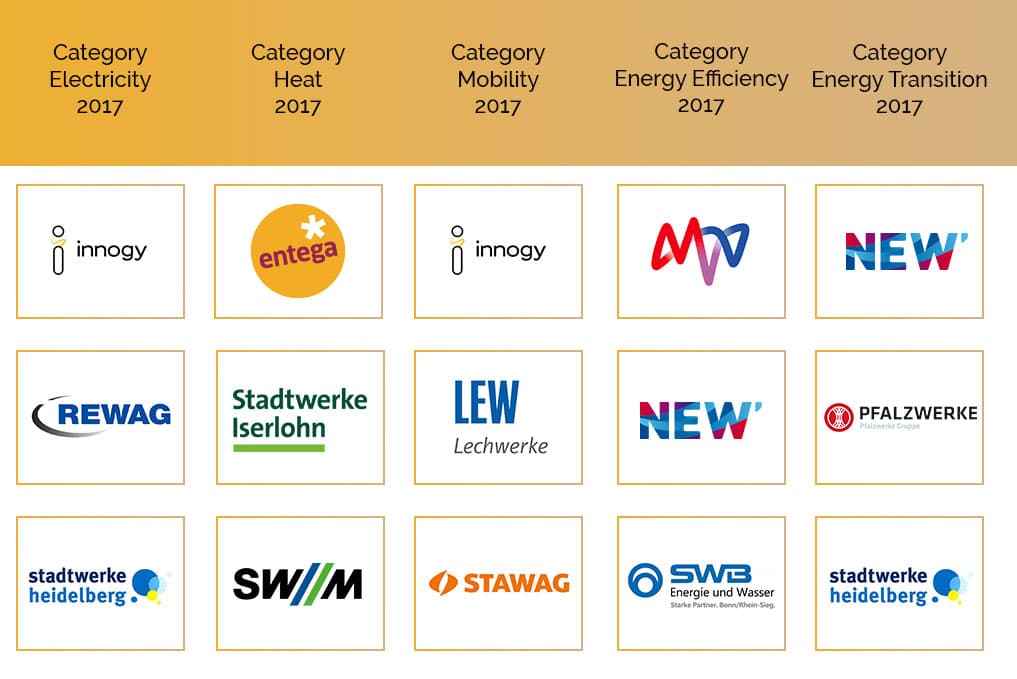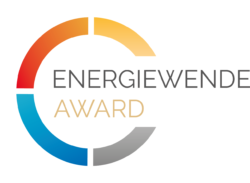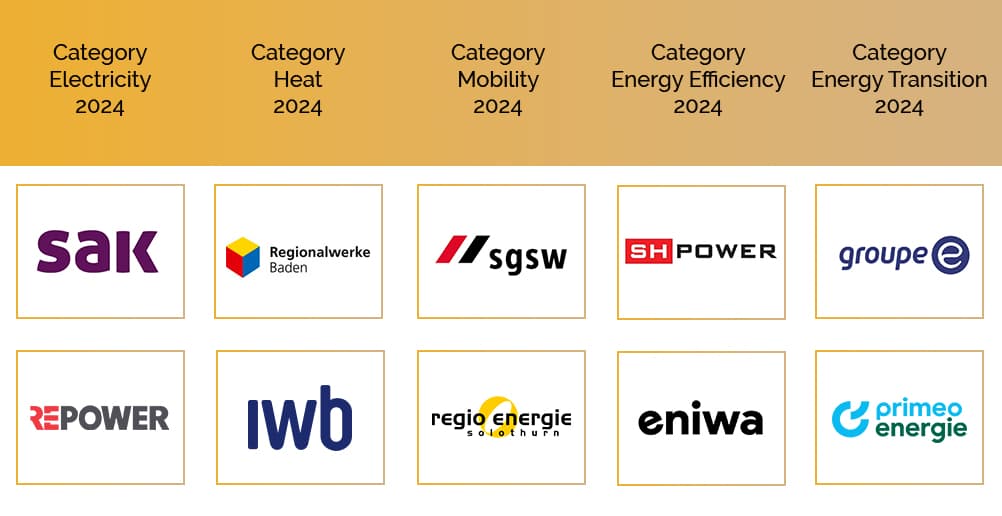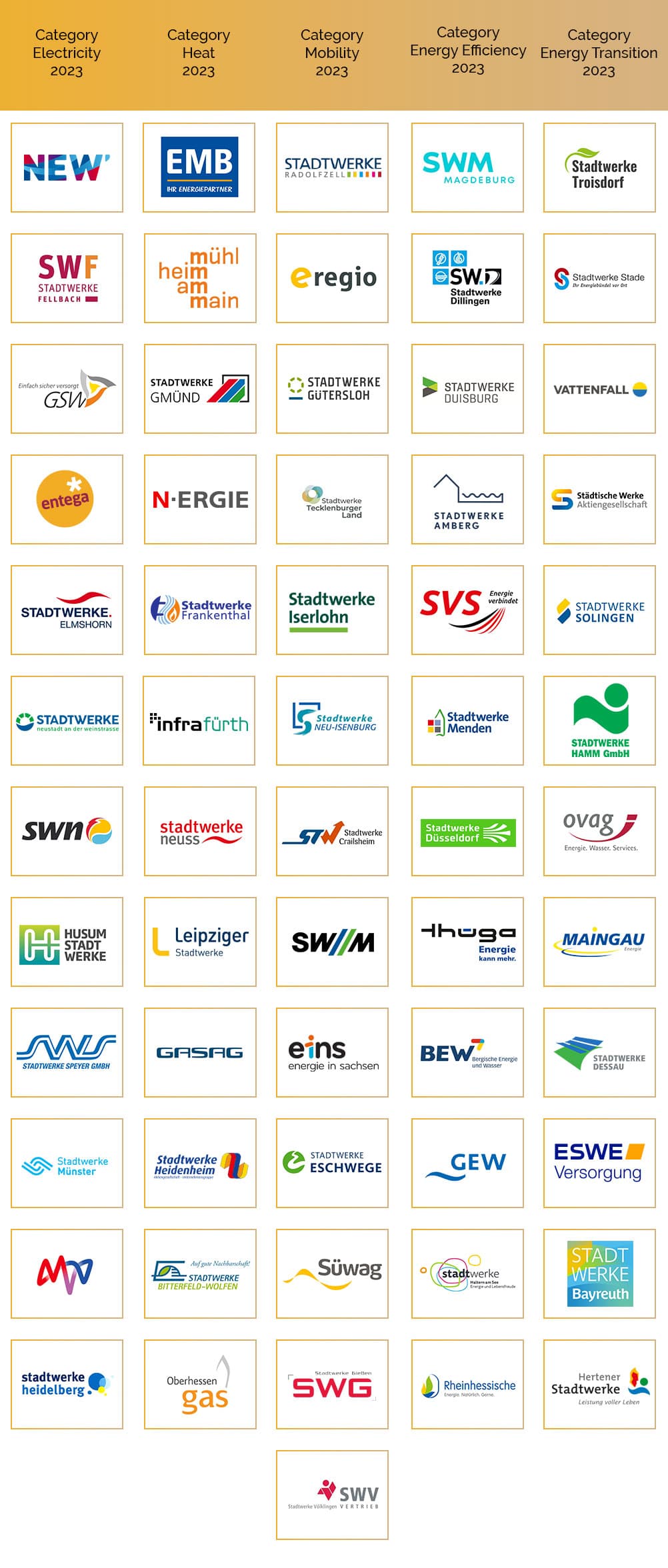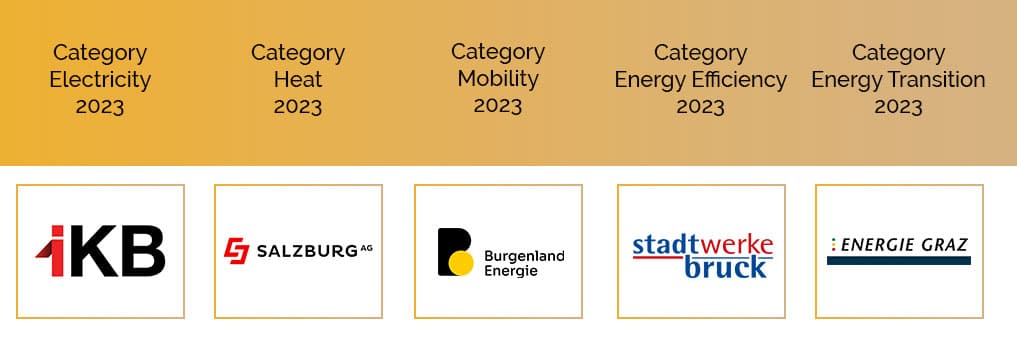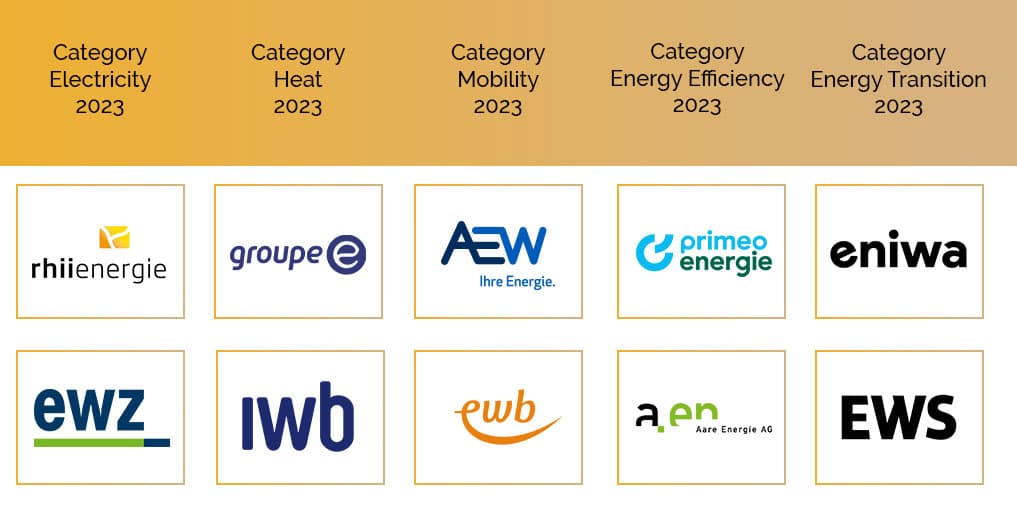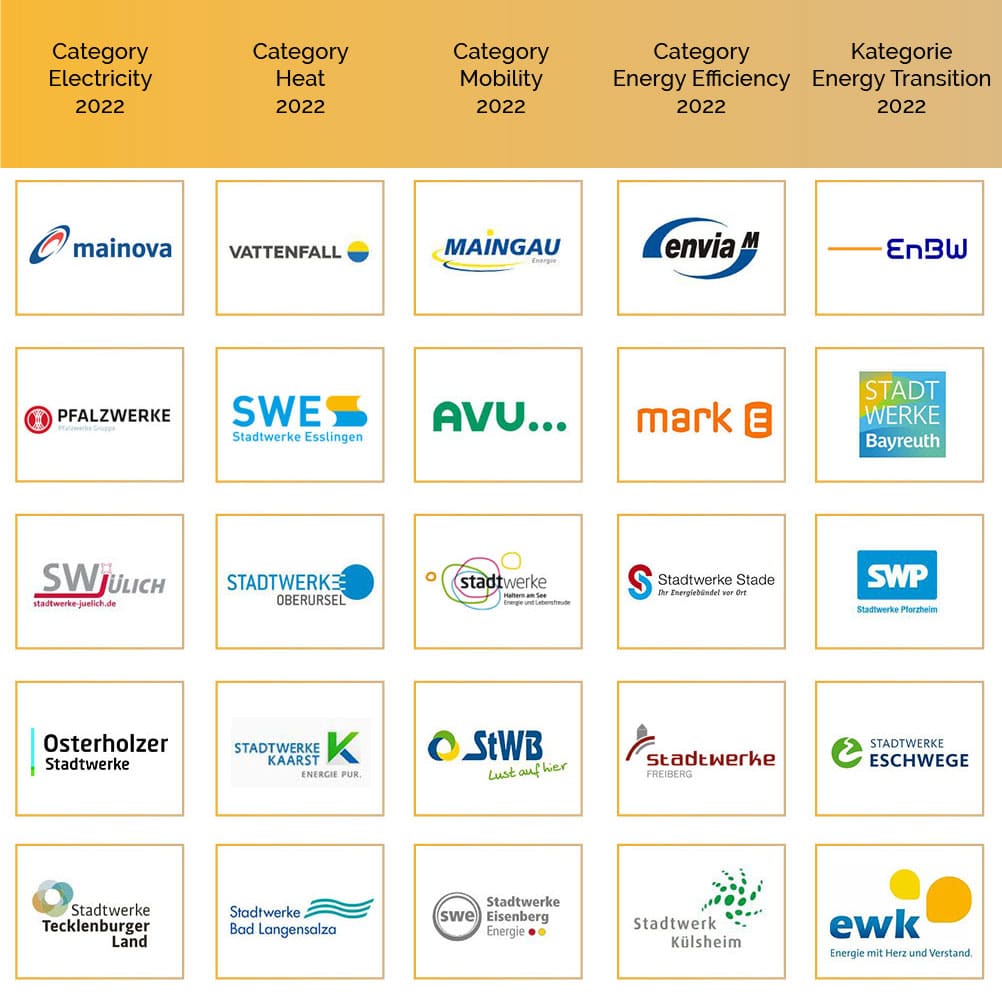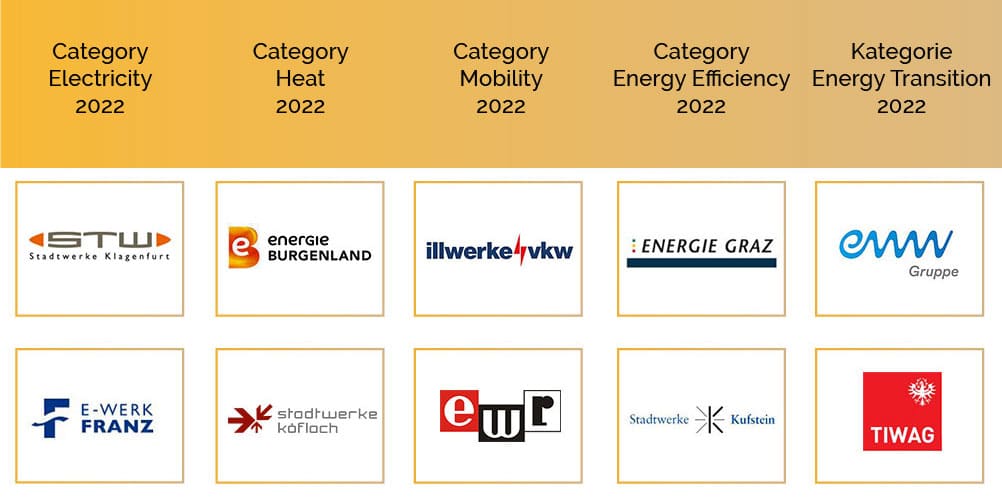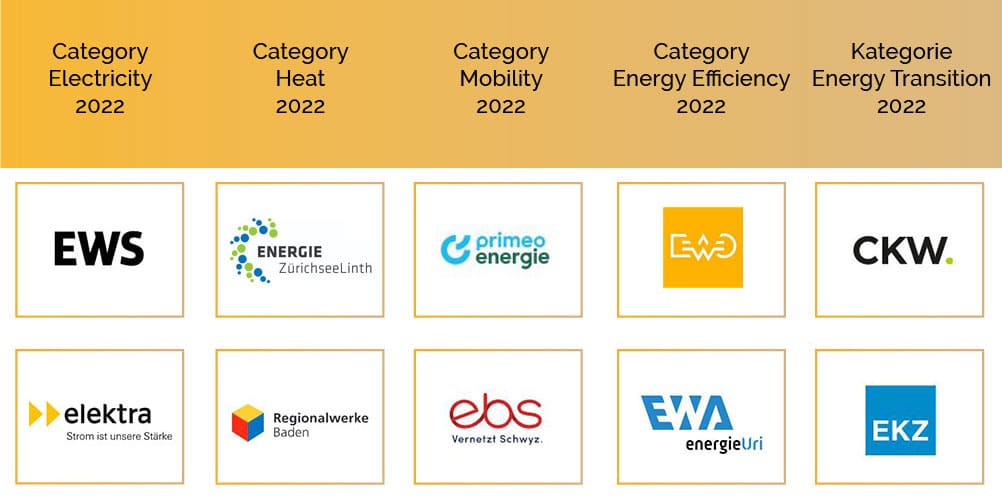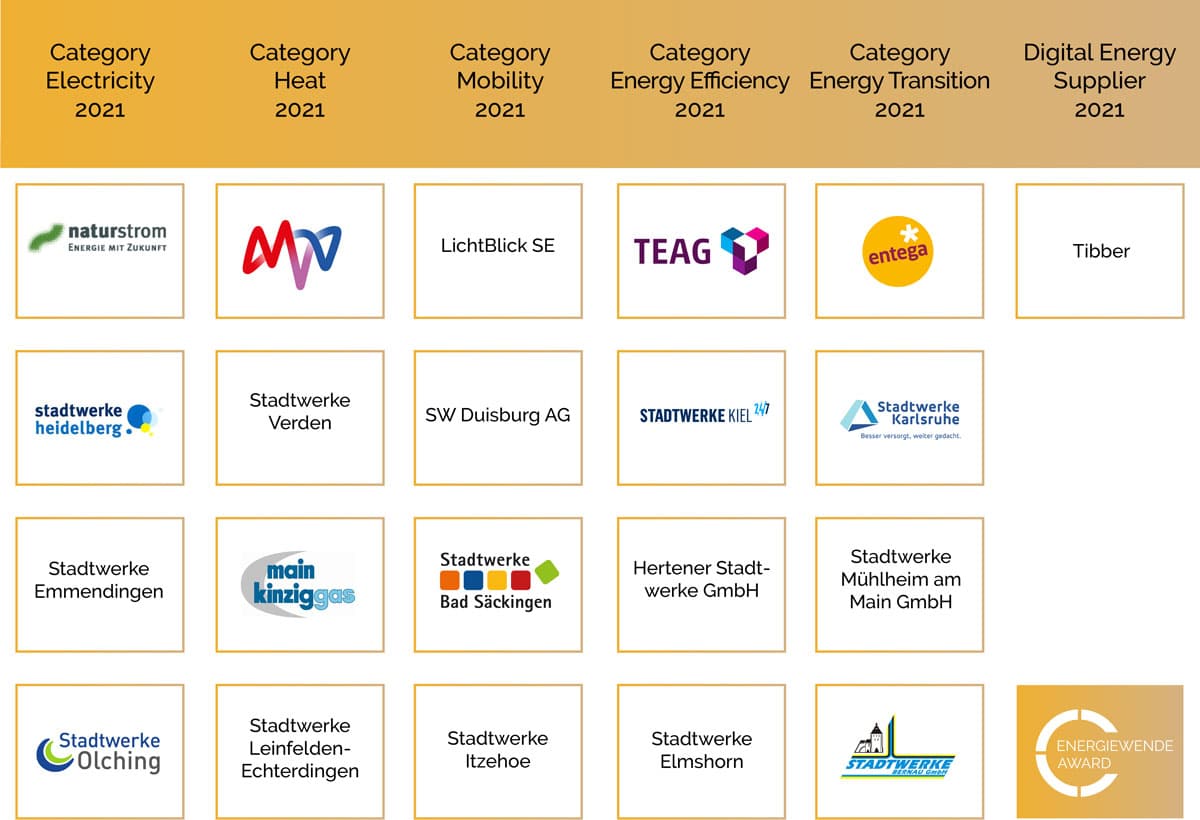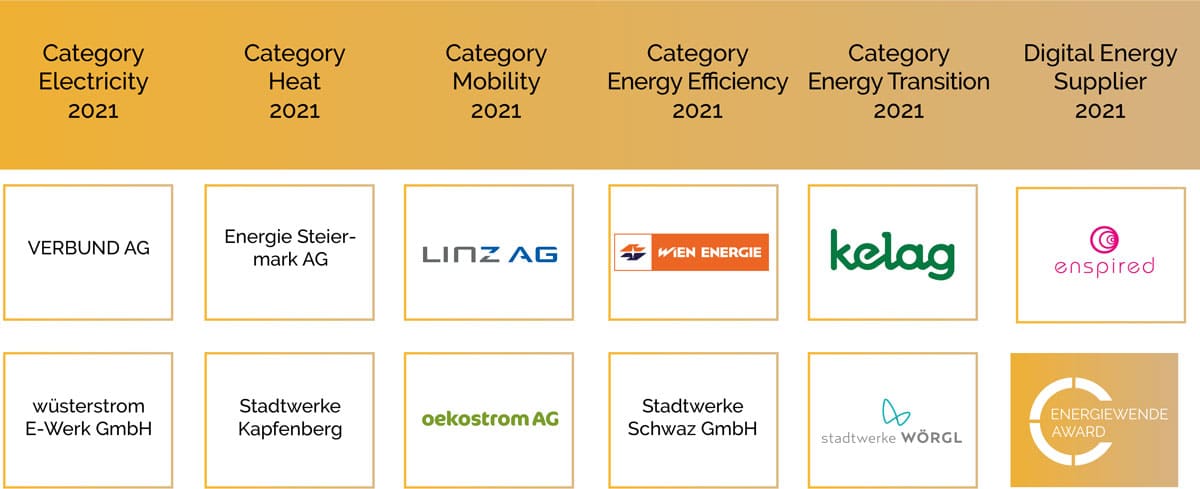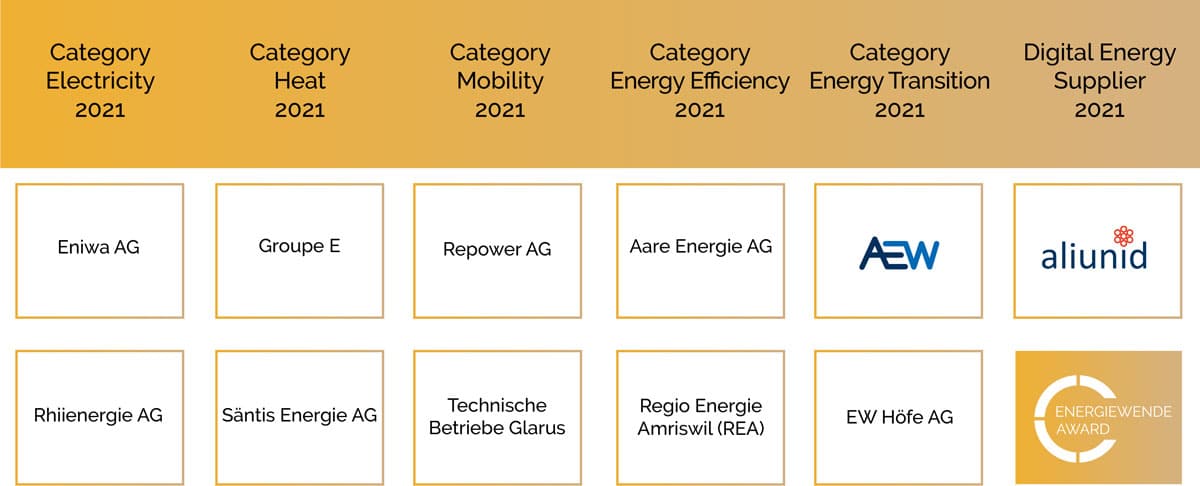Energy Transition Award for
Energy Suppliers

The smarter E Forum,
Hall B5, Booth: B5.550
Electricity is the most important sector in energy supply. The evaluation includes various products such as green electricity or electricity products with a savings bonus, as well as photovoltaic systems, electricity storage and additional services associated with these.
A switch to renewable energies is also necessary in the heating sector in order to achieve the climate targets by 2050. Products in the heating sector include eco-gas, biogas as well as heat generation technologies such as solar thermal energy and heat pumps.
The energy efficiency sector covers products that help to save energy in everyday use. Additionally, services in the efficiency segment include, for example, the offer of an energy consultancy.
The registration figures for electric cars show high growth rates; last year, the number of electric cars exceeded one million.With their commitment to expanding the charging infrastructure, offering products and services on the subject of electromobility to end customers, energy suppliers are helping to drive the transport turnaround.
The Energy Transition category includes a special commitment in all four categories mentioned before. Energy suppliers with a particularly good range of products and services in the segments of electricity, heating, energy efficiency and mobility stand out in the energy transition category.
Energy Transition, End Customers & Energy Suppliers
To date, there is a lack of meaningful neutral orientation for the end customer as to which energy suppliers are already in an exemplary position in the individual aspects of the energy transition and act in the interests of the customer. Similarly, energy suppliers themselves do not have a reliable benchmark against which to compare and better prepare for the future.
Unlike in the traditional energy industry, customers – private households – are active players in the energy transition as well. Not only do they determine demand by purchasing green power, renewable heat or biofuels, but some also become suppliers themselves through their use of renewable energies. Energy suppliers are thus faced with the challenge of positioning themselves in the energy transition with innovative products and services for customers and their changing needs.
Analytic Process - Customer Survey & Data Collection


Quality Model
The quality model is comprised of a catalogue of more than 35 criteria that reflect the end customer's requirements for the provision of products and services by the energy supplier in the four energy transition segments.
Programm
| Uhrzeit | Thema |
|---|---|
| 16:00 - 16:05 | Eröffnung des 7. Energiewende Awards für Energieversorger |
| 16:05 -16:25 | Roundtable-Diskussion | Strom & Wärmewende |
| 16:25 - 16:30 | Preisverleihung | Strom & Wärme |
| 16:30 - 16:50 | Roundtable-Diskussion | Energieeffizienz |
| 16:50 - 16:55 | Preisverleihung | Energieeffizienz |
| 16:55 - 17:15 | Roundtable-Diskussion | Mobilitätswende |
| 17:15 - 17:20 | Preisverleihung | Mobilität |
| 17:20 - 17:40 | Roundtable-Diskussion | Energiewende |
| 17:40 - 17:45 | Preisverleihung | Energiewende |
| 17:45 - 18:00 | Get Together |
Quality Model as a Measure of Commitment

‘Products’ include those offers which can actually be purchased by end customers. These include, on the one hand, classic products such as electricity and gas tariffs and, on the other hand, more innovative offers such as photovoltaic systems or heat pumps.
The sub-category “Services” refers to additional offers by energy suppliers that are offered in addition to the product portfolio. This includes services such as the provision of advice tools on electricity, heat or energy advice and funding opportunities in general. They accompany or complement the product portfolio. The quality model's criteria expresses the multi-layered nature of the energy transition.
Quality Seal
Evaluation and Winner Selection

History of Award Winners in the DACH Region
Winners of the Energy Transition Award 2020



Winners of the Energy Transition Award 2019



Winners of the Energy Transition Award 2018



Winners of the Energy Transition Award 2017
